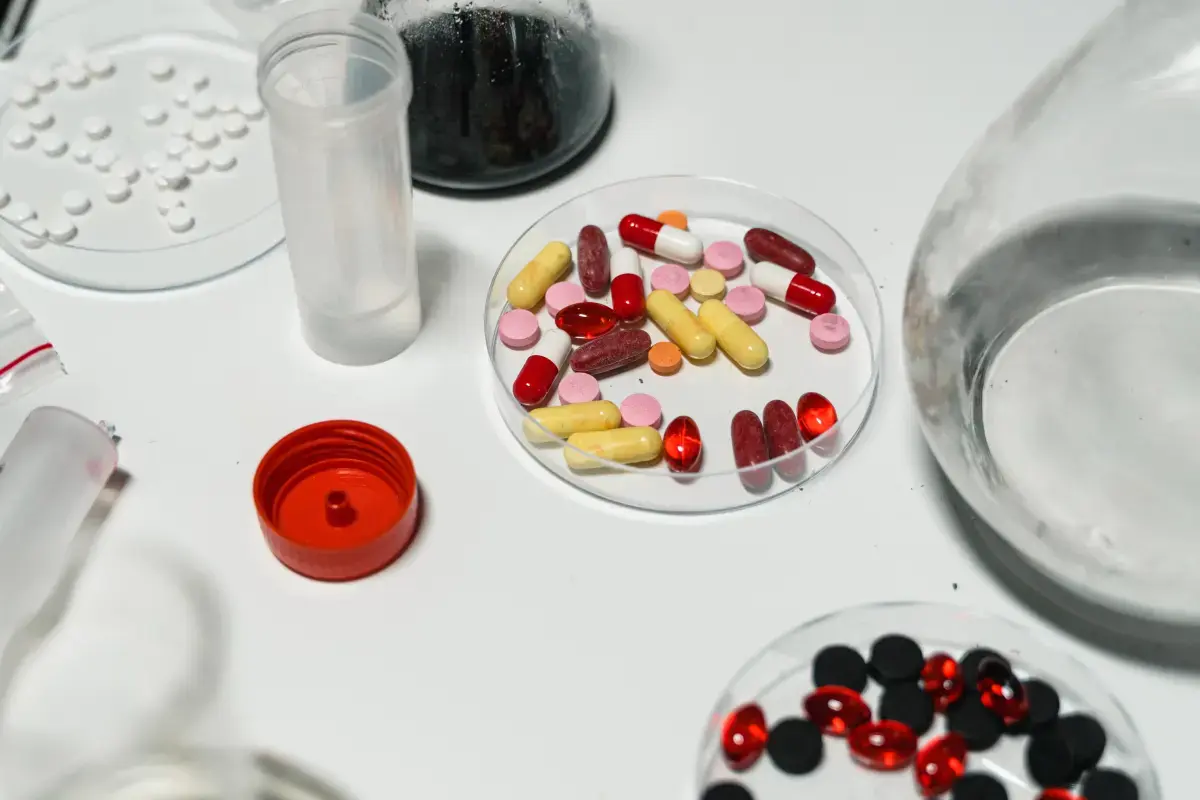
Pharmacist Job Description
What is a Pharmacist Professional?
A pharmacist is a highly trained professional who dispenses medication and provides expert advice on the use of drugs, their effects on health, and any possible interactions with other medications. The word “pharmacy” comes from the Greek φάρμακον (pharmakon), meaning “drug” or “medicine”. A pharmacist must have a thorough knowledge of chemistry and pharmacology in order to be able to understand how medications work in the body and what effect they may have. They must also be up-to-date on all the latest research regarding new drugs and developments in drug therapy. In addition, pharmacists must be excellent communicators, both in providing information to patients and other healthcare professionals, and in listening to patients’ questions and concerns.

What does a Pharmacist Expert do?
Pharmacists play an important role in ensuring that patients receive safe and effective medication. They do this by Dispensing prescription medications according to doctors’ orders Checking for drug interactions Providing patient education about proper medication use, side effects, storage, etc. In some cases, pharmacists may also prepare custom medications for individual patients based on their specific needs (e.g., allergies or allergic reactions). Some pharmacists work in hospitals or clinics where they provide direct patient care services such as: administering injections dispensing medicines preparing intravenous (IV) solutions conducting drug rounds educating patients and their families about correct medicine usage consulting with other members of the healthcare team Other pharmacists work in community pharmacies where they dispense prescriptions but also provide over-the-counter (OTC) medicines advise customers about OTC options consult with customers make sure customer are using their medicines safely store inventory manage staff

What are the Skills of a Pharmacist?
In order to become a pharmacist, one must first obtain a degree in pharmacy from an accredited institution. Most pharmacy programs last four years and include coursework in chemistry, biology, physiology, mathematics, and other sciences. After completing their undergraduate studies, pharmacists must then pass the Pharmacy College Admission Test (PCAT) in order to be admitted into a pharmacy school. Once enrolled in a pharmacy program, students take classes such as pharmacology, toxicology, and drug interactions. They also complete clinical rotations in various settings such as hospitals, community pharmacies, and long-term care facilities. Upon graduation from pharmacy school, pharmacists must then pass two examinations—the North American Pharmacist Licensure Examination (NAPLEX) and the Multistate Pharmacy Jurisprudence Exam (MPJE)—in order to obtain a license to practice pharmacy. As health care professionals who are responsible for dispensing medications and providing information about them to patients and physicians alike, pharmacists must have excellent communication skills.

What makes an Expert Pharmacist?
They must be able to understand complex medical jargon while also being able to explain it clearly to those who do not have a scientific background. In addition to strong verbal communication skills, pharmacists also need excellent writing skills so that they can fill out prescriptions correctly and legibly. Pharmacists must also be detail-oriented individuals who are able to pay close attention to the often minute details of their work. This is necessary both when they are filling prescriptions—to ensure accuracy—and when they are counseling patients on how to take their medication properly. Those who work as hospital or clinic staff pharmacists may also be responsible for monitoring patient charts for drug interactions or adverse effects of medication regimens; thus requiring even greater attention to detail. An important component of being detail-oriented is having good organizational skills so that one can keep track of all the different tasks that need to be completed on any given day. For example: compounding medications according to prescription orders; stocking shelves with new arrivals of drugs; updating inventory records; ordering supplies when needed; preparing reports for managers; etc.. Strong time management skills are essential so that tasks can be completed efficiently without errors or oversights due incorrect prioritization

What level of Experience & Qualifications are required to be a Pharmacist?
Education: Must have a Doctor of Pharmacy degree from an accredited school. • Training/Internship: Participate in a pharmacy practice residency program or complete other post-graduate training as required by state regulations. • Licensure and Certification: Obtain licensure to practice pharmacy according to the rules and regulations set forth by each individual state board of pharmacy, which may include passing the North American Pharmacist Licensure Examination (NAPLEX). Additionally, earn voluntary certification through organizations such as The National Association Boards of Pharmacy’s Verified-Accredited Wholesale Distributors Program (VAWD), The Institute for Safe Medication Practices Certified Geriatric Pharmacist (CGP) credentials, etc. • Industry Experience: Work experience in retail pharmacies under direct supervision is typically necessary before pursuing independent career options; this requires working with patients on drug regimens, supervising technicians and interns who assist with stocking shelves and filling prescriptions, maintaining patient records electronically using software programs designed specifically for pharmacists; furthermore must keep abreast of new developments in medication therapies including generic alternatives prescribed treatments along with nonprescription remedies available over-the counter medications that can help treat minor illnesses common ailments .

What is the Salary of a Pharmacist?
A junior pharmacist typically earns an annual salary between $50,000 and $65,000. This is the entry-level range for pharmacists just starting out in their career. As they gain more experience or move up to a higher level of responsibility within the pharmacy, their salaries can increase significantly. A senior pharmacist with several years of experience may earn anywhere from $90,000 to over $100,000 annually depending on location and other factors such as work hours or job duties. For those who specialize in areas like drug information technology (DIT) or nuclear pharmacy management (NPM), they could expect even higher pay levels due to the additional responsibilities associated with these roles. In addition to base salary expectations there are also bonuses that can add significant value for experienced professionals in leadership positions at larger organizations.

What are the Working Conditions for a Pharmacist?
The working conditions for a pharmacist vary, depending on their work setting. Generally speaking, pharmacists spend most of their time in comfortable office settings or clean pharmacies. They may also be required to travel between different locations and/or hospitals if they are employed by a large health care organization. Most pharmacists typically wear white lab coats during the day when interacting with patients and staff members at the pharmacy or hospital; however, some employers require business attire such as slacks and dress shirts instead of casual clothes like jeans and t-shirts. In addition, many states have regulations about what kind of clothing is allowed for certain types of medication handling (such as sterile compounding areas). Pharmacists often work long hours that can include evenings, weekends, holidays and overnight shifts due to being an essential healthcare provider available 24/7 to dispense medications safely. There can also be times when there’s an increased workload because more prescriptions need filling than usual so flexibility is important too! Furthermore many pharmacies rely heavily on technology which means that computer literacy skills related to electronic medical records systems are necessary in order stay up-to-date with new developments while maintaining accuracy in all data entry tasks associated with patient information management systems (PIMS). Overall it’s important for pharmacists to maintain excellent communication skills both within their team environment as well as externally with customers since they will often serve multiple roles such as providing advice about treatments & side effects along answering questions from physicians regarding drug interactions etc…. Its critical for any successful pharmacist career path that these individuals make sure they adhere strictly adhering to federal laws concerning controlled substances & other sensitive pharmaceutical materials - failure to do this could result in serious consequences ranging from suspension licenses revocation !

What are the roles and responsibilities of a Pharmacist?
checking for drug interactions
preparing and giving injections
mixing medications
counting pills
pouring liquids
measuring powders
placing labels on containers
retrieving patient records
answering phones
contacting physicians for clarification of prescriptions
educating patients about their medications
compounding and dispensing medications
entering patient information into computer systems
maintaining pharmacy inventory
ordering drugs and other supplies
collaborating with healthcare teams to plan care for patients
monitoring drug therapies for safety and effectiveness
conducting medication reviews with patients
providing immunizations and other injections
supervising pharmacy technicians and interns

Where can I find Pharmacist jobs?
- Create a profile on gigexchange and promote your Pharmacist skills to advertise you are Open to New Work Opportunities
- Ensure your Resume (or CV), or online work profile is up to date and represents your skills and experience. Ensure your reputation reflects your ability & attitude.
- Apply for Pharmacist Jobs advertised on gigexchange.
- Practise Pharmacist interview techniques to ensure you represent your personality and ability succinctly and confidently.
- Accept the job offer if the salary meets your expectations and the employer mission and purpose reflects your core values.
Jobs
What are the best job boards for Pharmaceutical jobs?

How can I hire Pharmacist staff online for my business?
The best job board for recruiting Pharmacist experts is gigexchange.com. Advertise full-time, part-time or contract jobs to find, hire & recruit trusted, experienced and talented Pharmacist candidates near you.

Are Pharmacist roles in demand in 2026?
Pharmacist experts are still in high demand in 2026. If you are an experienced Pharmacist or looking to train and become one. The job market is looking strong for Pharmacist jobs near me.